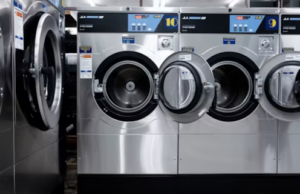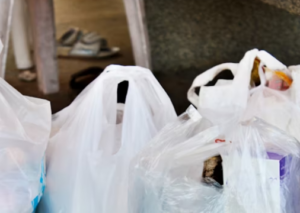Sales Tax and Sustainability: Bringing the Focus Back to Our Earth
Who knew sales tax could have an impact on the environment and the world we live in?
They do! Tax authorities have an important role in encouraging the public to make the necessary changes in lifestyle, manufacturing, packaging, and purchasing decisions that help meet sustainability targets. According to Ernst & Young, governments have been leveraging sales tax policies to achieve sustainability targets, and that trend is likely going to continue in the coming years.
ENERGY STAR® Holidays: A Federal Effort to Decrease Use of Fossil Fuels
The generation of electricity is one of the leading causes of climate change! According to the United Nations, most electricity is still generated by burning coal, oil, or gas, which produces carbon dioxide and nitrous oxide – powerful greenhouse gases that blanket the Earth and trap the sun’s heat. Most of us are guilty of this!
In efforts to contribute to sustainability, many states across the country have implemented sales tax holidays dedicated to shopping environmentally smart for appliances, lighting, and heating equipment, including Florida, Maryland, Missouri, and Texas. These sales tax holidays exempt ENERGY STAR® qualified products and other water or energy-efficient products.
In order to be qualified as an ENERGY STAR® product, items are required to meet the guidelines of the U.S. Environmental Protection Agency and the U.S. Department of Energy. WaterSense® products are also included.
What are some examples of these products? The list includes air conditioners, clothes washers or dryers, furnaces, heat pumps, standard size refrigerators, and compact fluorescent light bulbs.

“Since 1992, the ENERGY STAR© program and partners have helped American families and businesses save more than 4 trillion kilowatt-hours of electricity and reduce over 3.5 billion metric tons of greenhouse gas emission which is equivalent to the annual emissions of more than 750 million cars.” – Maryland Energy Administration
Let’s look at a couple examples. In April 2024, Missouri hosted their sales tax holiday for all retail sales of ENERGY STAR® certified new appliances (including clothes washers, clothes dryers, water heaters, dishwashers, air conditioners, furnaces, refrigerators, freezers, and heat pumps) of up to $1,500 per appliance. Texas’ 2024 ENERGY STAR® sales tax holiday is May 25-27. The state exempts ENERGY STAR®-qualified air conditioners priced at $6,000 or less, refrigerators priced at $2,000 or less, ceiling fans, incandescent and fluorescent light bulbs, dishwashers, dehumidifiers, programmable thermostats, and clothes washers. Texas includes water-saving products that are used or planted for conserving or retaining groundwater, recharging water tables, or decreasing ambient air temperature, and so limiting water evaporation. This applies to soaker/drip-irrigation hoses, moisture control for sprinkler/irrigation systems, mulch, rain barrels, permeable ground cover surface, plants, trees and grasses, water-saving surfactants, soil, and compost.
Public policy has always been a significant driver to tax policy, and environmental policy is just another example of how state governments are using tax policy to help address climate challenges. Sales tax holidays are one short term approach states use to accomplish these goals. There are certainly reasons for sales tax holidays, and this can be an approach to encourage consumers to upgrade and improve appliances that have some significant impact to climate.
Not only do these sales tax holidays save Americans billions of dollars each year, but they incentivize taxpayers to make efforts to make a difference when it comes to environmental sustainability. To stay up to date with upcoming ENERGY STAR® sales tax holidays, check out our Sales Tax Holidays Chart.
Bag Fees: A Waste Prevention Tactic
It is not a new trend for states to use tax policy as a way of changing public behavior. One of the newer tactics states and also localities are using is implementing bag fees. In this case the tax authority is trying to persuade the public to help the environment by bringing reusable shopping bags (hence, producing less plastic waste). Over the last few years, hundreds of jurisdictions have implemented plastic bag bans which work towards the same goal of preventing plastic waste. According to Environment America, these initiatives have been largely successful, eliminating billions of plastic bags annually (Enough bags to circle the earth 42 times!).
Various jurisdictions have enacted “bag fees” which may be a fee or a tax. In some cases, these may be included in the sales tax base.

In 2020, the state of New York authorized counties and cities the option to impose a five-cent paper carryout bag reduction fee when sales tax vendors of tangible personal property provide paper carryout bags, other than exempt bags, to customers. The bag fee applies to each paper carryout bag provided to a customer, even if the vendor does not sell any tangible personal property or services to a customer, and regardless of whether the tangible personal property or service is tax exempt.
Colorado enacted House Bill 21-1162, which impacts in-state retailers, including retail food establishments, who provide single use bags to customers at the point of sale. This bill’s goal is to significantly reduce the use of single use plastics due to the harm they can have on the environment. Beginning January 1, 2024, only recycled paper bags may be provided for a fee. On January 1, 2024, in addition to the requirement only recycled paper bags be used, retail food establishments will also be required to stop using polystyrene (commonly known as Styrofoam™) or other similarly constituted containers both for dine in and carryout meals.
It’s likely that the momentum for bag fees will continue to spread around the United States as states tend to follow by example of others. States and especially localities are looking at fees as their newest source of revenue. With sales tax rates at the highest we’ve seen in a long time, the creation of new fees is a way to continue to fund government services. What these tax authorities don’t always keep in mind is the complexity these fees raise and the burden on businesses, particularly remote sellers. These fees are often not part of the Revenue Department or related statutes and regulations which results in a lack of knowledge and awareness for sellers that might be responsible for their collection.
Manufacturing Sales Tax Exemptions: Encouraging Pollution Control
Now let’s explore some important information about manufacturing exemptions related to sustainability and the environment. Pollution from manufacturing processes (which releases carbon dioxide and methane into the air) results in many issues such as increasing the risk of rise in the earth’s temperature, rising sea levels, lung and heart damage, and more. According to the Environmental Protection Agency, ways to improve this situation are using non-toxic chemicals, implementing conservation practices, and making modifications to production practices. Another common way to combat this excessive pollution across the United States is through sales tax exemptions for pollution control equipment.

The inclusion of pollution control equipment in a manufacturing exemption varies across states. In Mississippi, purchases of pollution control equipment by manufacturers are exempt. Additionally, Mississippi provides expanded exemptions for clean energy producers, showcasing a commitment to environmental sustainability. In Texas, certain tangible personal property is exempt if it’s specifically installed for wastewater purposes or necessary for pollution control. Property required to comply with federal, state, or local public health laws also falls under this exemption. They all aim to encourage environmentally responsible practices within the manufacturing sector while also supporting compliance with relevant regulations.
If you run a business, it’s important to have someone responsible for monitoring sales tax (and fees) changes that could affect environmental sustainability. If you’d like to learn more about ways indirect tax can relate to environmental sustainability, you can look to other areas of the world, like the European Union, that have made more strides in this direction. The changes in the EU typically spill into the United States over time, so we should expect to see the same trends.